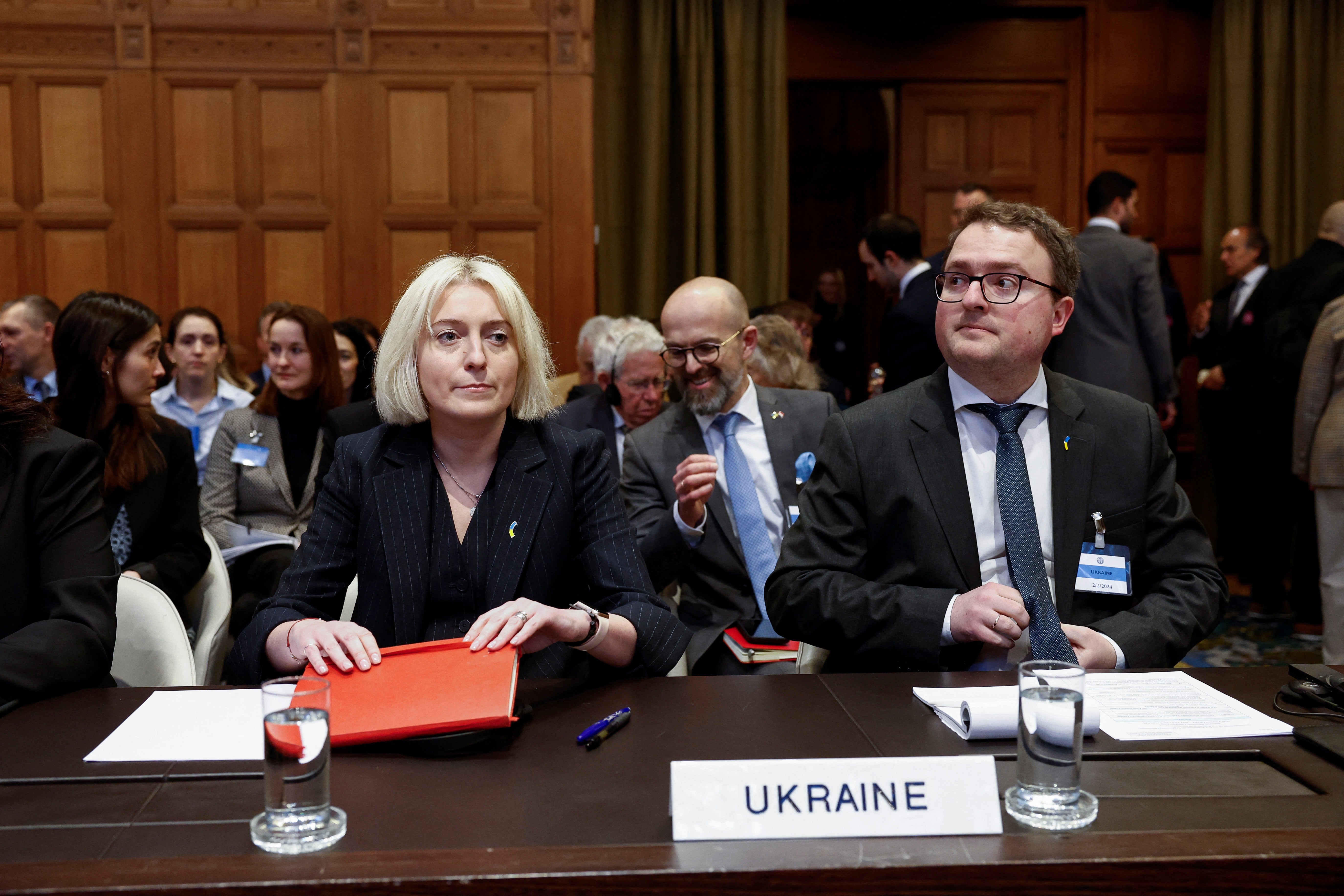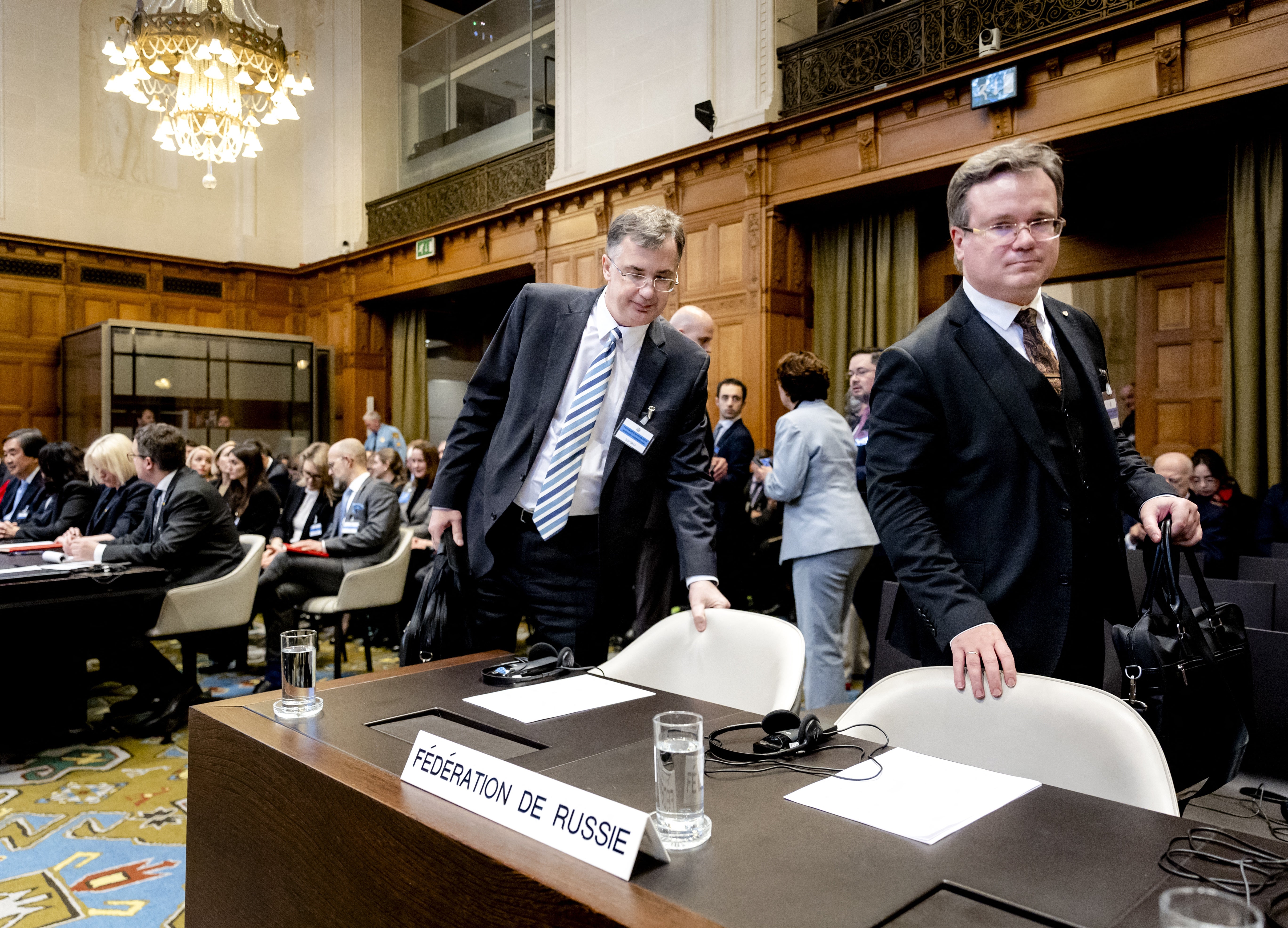UN’s top court says it will hear part of Ukraine-Russia genocide case
Kyiv says Moscow used trumped up genocide allegations in eastern Ukraine to try and justify its invasion

Your support helps us to tell the story
From reproductive rights to climate change to Big Tech, The Independent is on the ground when the story is developing. Whether it's investigating the financials of Elon Musk's pro-Trump PAC or producing our latest documentary, 'The A Word', which shines a light on the American women fighting for reproductive rights, we know how important it is to parse out the facts from the messaging.
At such a critical moment in US history, we need reporters on the ground. Your donation allows us to keep sending journalists to speak to both sides of the story.
The Independent is trusted by Americans across the entire political spectrum. And unlike many other quality news outlets, we choose not to lock Americans out of our reporting and analysis with paywalls. We believe quality journalism should be available to everyone, paid for by those who can afford it.
Your support makes all the difference.The UN’s top court has ruled that it will hear a case in which Ukraine has asked it to declare its forces did not commit genocide in eastern Ukraine – claims used by Vladimir Putin as pretext for his invasion.
In the highly-charged case, Kyiv says Moscow breached a 1948 convention by using trumped-up claims of genocide in the regions of Luhansk and Donetsk. Ukraine also accuses Moscow of "planning acts of genocide."
Ukraine brought the case to the International Court of Justice (ICJ) days after 24 February 2022, when the full-scale invasion began. The court already issued emergency measures in March 2022 in this case ordering Russia to immediately halt its war in Ukraine.
On Friday, judges found the court had jurisdiction to hear just a small part of the original case. The judges threw out a request by Ukraine to rule on whether or not the Russian invasion violated the Genocide Convention.
Ukraine has argued there was no risk of genocide in eastern Ukraine, where it had been fighting Russian-backed forces since 2014.

More than two dozen European states, as well as Australia and Canada, have backed Kyiv by giving formal statements to the court, stressing they believe the case should move forward.
While the court’s rulings are final and legally binding, it has no way to enforce them and some states, like Russia, have ignored rulings.
Earlier this week, Ukraine had a small victory at the ICJ when the judges ruled Russia had violated UN treaties against the financing of terrorism and discrimination in a different case that dealt with incidents from 2014.
Friday’s rulings comes just a week after the ICJ heard South Africa’s case alleging that Israel had committed genocide against Palestinians in Gaza.
The court on 26 January issued what it called “emergency measures” urging Israel to prevent any acts of genocide during its war in the enclave.
A final ruling in both the South Africa case against Israel and the Ukraine case against Russia could take years.
The ICJ said it did not have jurisdiction in other aspects of Ukraine’s case, including claims that Russia’s invasion violated the Genocide Convention.
Reuters contributed to this report
Join our commenting forum
Join thought-provoking conversations, follow other Independent readers and see their replies
Comments